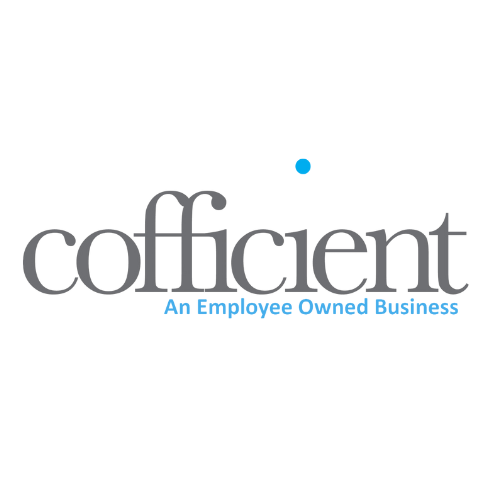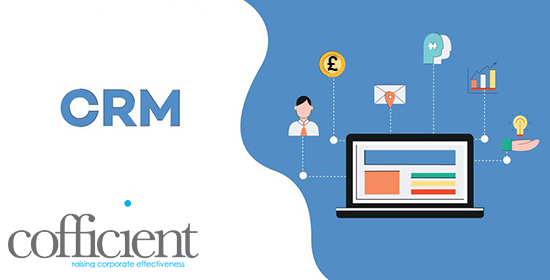What Is CRM Anyway? And Do I Really Need It?!
What is CRM?
Heard of this buzz word, CRM, but not quite sure what it means? You’re not alone. I am so used to seeing that blank stare when I say “CRM software” that I have started to call it Sales Management Software. People understand that better.
So, what is CRM anyway?
- CRM stands for customer relationship management
- It is the term which is used to describe a piece of software which helps you track and manage engagements with your existing and potential customers
- A CRM system acts as a central data repository for all your key customer information
- A CRM system can be used to track human and automated interactions with all your customers, from phone calls, to meetings and marketing emails
- A CRM system is a powerful analytics tool. It should be used to slice and dice your data in order to provide useful business intelligence to improve decision making. Most CRM systems have a very visual and user friendly interface so you can view this business intelligence in graphical formats
- CRM systems are principally accessed by your sales, marketing and customer service departments – but may also be used at board level or by finance
Yeah, but big deal. A piece of software which holds my data and tracks responses – I hear you ask… I’ve got a spreadsheet which does that…so…..
[click here to read about why you should never use spreadsheets instead of CRM]
…..Do I Really Need CRM?!
The short answer is YES!
A good customer relationship management system is essential to any business. Here are all the things a CRM system can do which your spreadsheet can’t.
- It aids sales people with their interactions
It can be difficult to remember all your customer information. The more customers and prospects your sales and marketing team are expected to interact with, the more onerous a lack of CRM becomes. Important information a CRM captures can be anything from dates and times of next point of contact, to crucial personal information a customer has given you. A CRM system will help sales people manage their time, their activities and important information so that the onus for remembering isn’t placed upon them.
[click here to find out why salespeople HATE CRM software]
- You can retain all your prospect information safely
Any data added to the system becomes the property of the company. A sales person might own the relationship but the data belongs to the organisation. By giving sales teams a tool to update their pipeline and prospect information, you are ensuring the safety of that data. From a data protection perspective this is important. It also protects the customer record from abuse. A CRM system will help you manage your GDPR (General Data Protection Regulations) obligations. Unsolicited contact is considered abuse of guidelines and could lead to hefty fines for your business. A good CRM system will also help to protect the data as your asset. If your sales person leaves the business, a CRM system should help to prohibit the removal of the data from your system. You can lock down your CRM system so that data can only be extracted by permission. A good CRM system will also help reduce the cyber threat of data theft.
- Sales forecasting is automated within a CRM solution
Sales people are often expected to submit a sales forecast. Without a CRM system in place, the forecast can be subjective. Each sales person in the business might have a different idea of the likelihood of conversion of a particular prospect and “hand cranked” pipelines are often not work the paper they are often (literally) written on. A CRM system will help you define a process for pipeline management and forecasting. Creating distinct “statuses” for each part of the sale, and assigning a % probability accordingly, takes some of the effort out of forecasting, and standardises the process across the sales floor. With a good CRM system you won’t have to ask your sales people to submit a forecast. The system will automate the process as the sales people transact on it.
- Customer Service and Marketing can be included within your CRM
Many people think that CRM systems are only to help sales people manage their interactions and their time. Some of the best of breed CRM software also has capability which extends beyond this. A more complete CRM system will also have the ability to raise and manage customer service cases. Your customer can raise a case from your website or directly from a customer portal in your system. Likewise a member of staff can raise a case within the system from their call centre. The system will then automate the complaint to resolve process including, tracking the response, escalating if necessary and completing the case. Your CRM system might also have a Knowledge Bank facility which allows customers to access information for themselves – eliminating the requirement for large inbound call handling teams. The best CRM systems also have email marketing capability. Emails can be sent straight from your CRM system, with tracked responses, click through rates and profitability analysis. The new data protection laws (GDPR) come into play May 2018. A CRM system will help you stay compliant both in terms of keeping the data safe but also ensuring the contact has explicitly opted-in to receive your messages.
- You’ll get access to more powerful business intelligence
If you don’t have a CRM system, you’re probably tracking your customers on a spreadsheet or within a system for a different intended purpose (like a finance system). There are always limitations to managing customers in this way. For example, the finance system might track converted customers through invoice values, but it will not track prospects. You might be able to derive some key business intelligence from your spreadsheet in terms of conversion rate or customer types but doing so will involve large amounts of time manipulating the data, creating data validations, formatting fields and pivoting your data. A CRM system will provide you with all your key information effortlessly. Plus, a CRM system will help you identify crucial key performance indicators such as volume of new leads over a certain time frame, or overdue phone call tracking. This is more difficult to achieve when your data is being added to a single large spreadsheet. Of course, one of the most important elements of great business intelligence is that you can start to better predict the future of your business. Having a distinct CRM system in place will help you make better business decisions, quicker.
- Beat the competition
Your main competitor might already have a great customer relationship management system in place. At the very least you want to make sure you are not giving them a competitive advantage by lagging behind. The best case scenario is that your competitor hasn’t yet moved to a good CRM system, or has an outmoded and inefficient CRM system. This allows you to steal a march and gain some real ground. All the above points indicate the reason why a CRM system will give you a competitive edge in your market space.
[Click here to ready my own sorry tale about my nightmare sales management tool experiences]
If you are ready to take your business to the next level. Give us a call and we can talk you through how CRM can improve your business.



